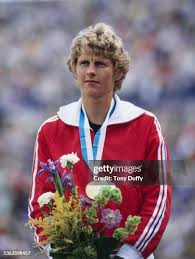The Legacy of Steve Cram in Athletics

Introduction to Steve Cram
Steve Cram, known as one of the most prominent middle-distance runners in British history, has left an indelible mark on athletics. Born on October 14, 1960, in Jarrow, England, Cram rose to fame during the 1980s, capturing the world’s attention with his remarkable performances on both national and international stages. His achievements as an athlete not only highlighted his personal dedication and talent but also inspired a generation of aspiring runners.
The Athletic Career of Steve Cram
Cram’s career began to flourish when he won the silver medal in the 1500 meters at the 1983 World Championships, just before securing his place in the record books. He went on to break the world record for the 1500 meters on July 7, 1985, in what is now regarded as a legendary race in Coburg, Germany, with a time of 3:46.32. This record stood for nine years, and Cram’s unique racing style and determination continue to be a benchmark for middle-distance runners today.
In addition to his World Championship success, Cram won a gold medal at the 1986 Commonwealth Games in Edinburgh and a silver medal at the 1984 Los Angeles Olympics in the 1500 meters. His rivalry with fellow UK athletes such as Sebastian Coe and Steve Ovett further amplified interest in middle-distance running, showcasing not only their athletic skills but also competitive spirit.
Post-Athletic Contributions
After retiring from competitive athletics in 1990, Steve Cram continued to contribute to the sport in various capacities. He became a prominent sports commentator and analyst, sharing his insights on athletics through television and radio appearances. Moreover, Cram has been an advocate for increasing youth participation in athletics, passionately encouraging young athletes to pursue their dreams.
Conclusion and Significance
Steve Cram’s legacy extends beyond his impressive records and accolades. His impact on middle-distance running and his dedication to the sport serve as an inspiration to aspiring athletes today. Cram continues to engage with the community through events and initiatives aimed at promoting health and fitness. As athletics evolves, the influence of figures like Cram remains crucial in shaping future generations of athletes. With his experience and knowledge, the possibility of further successes in British athletics remains bright.









